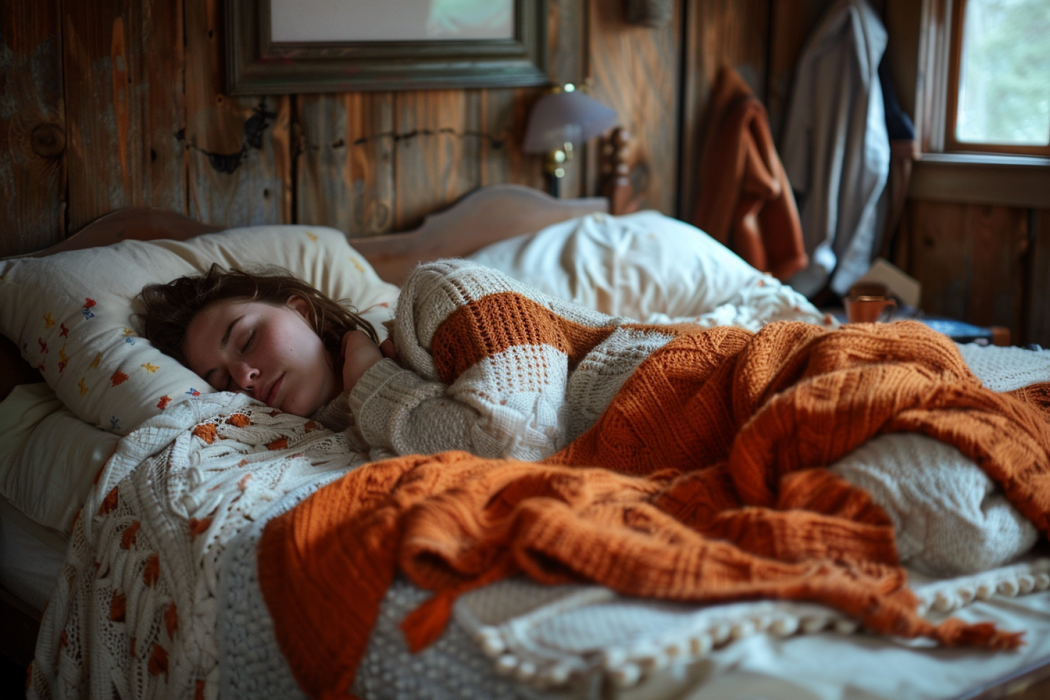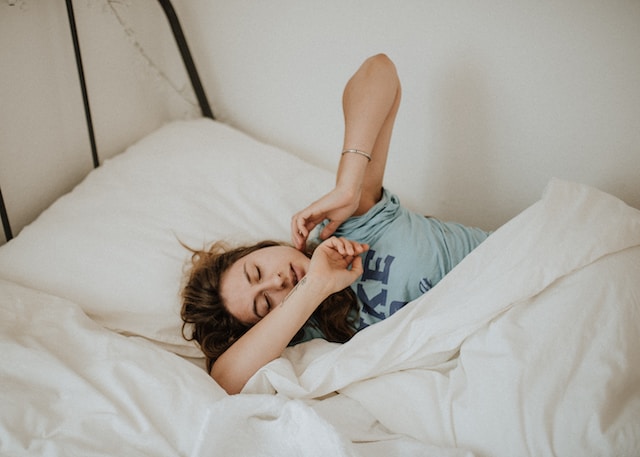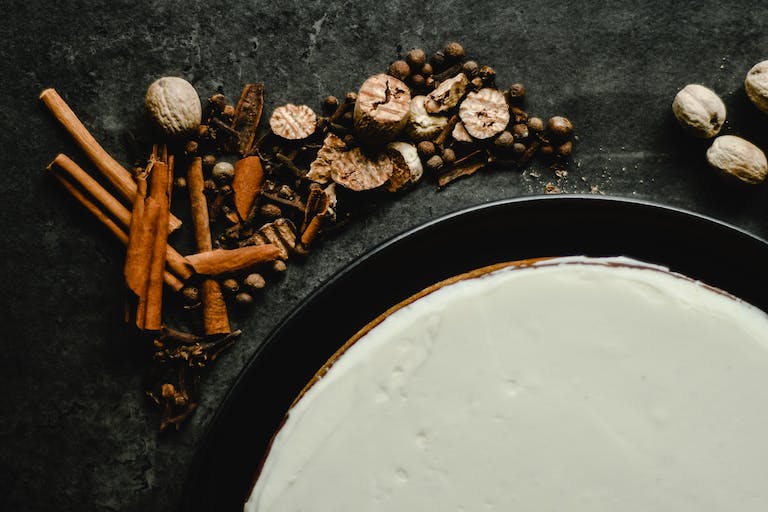How to Get More Deep Sleep
There are some affiliate links below, but they are all products I highly recommend. For more info, view my disclosure here.
Getting enough deep sleep is essential for maintaining good health. During deep sleep, your body repairs and regenerates tissues, strengthens the immune system, and consolidates memories.
However, many people struggle to get enough deep sleep each night. If you’re one of them, don’t worry – there are several things you can do to increase your deep sleep and improve your overall sleep quality.
One of the most effective ways to get more deep sleep is to establish a consistent sleep schedule. Go to bed at the same time every night and wake up at the same time every morning, even on weekends.
This helps regulate your body’s internal clock and improve the quality of your sleep. Avoid caffeine, alcohol, and nicotine in the hours leading up to bedtime, as they can interfere with your ability to fall and stay asleep.
Another way to increase your deep sleep is to create a relaxing bedtime routine. This can include taking a warm bath, reading a book, or practicing relaxation techniques such as deep breathing or meditation. By winding down before bed, you’ll signal to your body that it’s time to sleep and help prepare yourself for a restful night’s sleep.
Understanding Deep Sleep and Its Importance
If you’re looking to optimize your sleep, it’s essential to understand the different stages of sleep and how they affect your body. Deep sleep, also known as slow-wave sleep, is a crucial stage of sleep that plays a vital role in your physical and mental health.
Stages of Sleep and Deep Sleep Characteristics
There are four stages of sleep, and deep sleep occurs during stage three and four. During this time, your brain waves slow down, and your body temperature drops, allowing for a state of complete relaxation. Deep sleep is characterized by slow, rhythmic breathing, and a lack of muscle movement.
Benefits of Deep Sleep for Repair and Growth
Deep sleep is essential for your body’s repair and growth. During this time, your body releases growth hormone, which is critical for repairing tissues and building muscle mass. Deep sleep is when your immune system is most active, fighting off infections and illnesses.
Getting enough deep sleep is also important for cognitive function and emotional well-being. Studies have shown that deep sleep can improve memory consolidation, creativity, and emotional regulation.
To ensure you’re getting enough deep sleep, it’s important to establish healthy sleep habits. This includes creating a relaxing sleep environment, avoiding caffeine and alcohol before bedtime, and sticking to a regular sleep schedule. With these habits in place, you can optimize your deep sleep and reap the many benefits it offers.
Factors Affecting Deep Sleep Quality
Getting enough deep sleep is essential for your overall health and well-being. However, several factors can affect the quality of your deep sleep. In this section, we will discuss some of these factors and how they can impact your sleep.
Impact of Diet and Exercise on Sleep
Your diet and exercise habits can significantly affect your sleep quality. Consuming a diet high in sugar and processed foods can lead to poor sleep quality, while a diet rich in whole foods, fruits, and vegetables can improve your sleep.
Regular exercise can also improve the quality of your sleep. Exercise helps reduce stress and anxiety, which can both disrupt your sleep. Avoid exercising too close to bedtime as it can make it harder to fall asleep.
The Role of Stress and Anxiety in Sleep Disruption
Stress and anxiety can significantly impact the quality of your sleep. When you are stressed or anxious, your body produces more cortisol, a hormone that can disrupt your sleep.
To reduce stress and anxiety, try practicing relaxation techniques such as meditation or deep breathing exercises. You can also try creating a relaxing bedtime routine to help you unwind before bed.
How Alcohol, Caffeine, and Nicotine Influence Sleep
Alcohol, caffeine, and nicotine can all affect the quality of your sleep. While alcohol may help you fall asleep faster, it can disrupt your sleep later in the night, leading to poor sleep quality.
Caffeine, on the other hand, is a stimulant that can keep you awake and disrupt your sleep. It is best to avoid consuming caffeine late in the day.
Nicotine is also a stimulant that can disrupt your sleep. If you are a smoker, try to avoid smoking before bed to improve the quality of your sleep.
Several factors can affect the quality of your deep sleep, including your diet, exercise habits, stress and anxiety levels, and substance use. By making small changes to your lifestyle, you can improve the quality of your sleep and enjoy the many benefits that come with getting enough deep sleep.
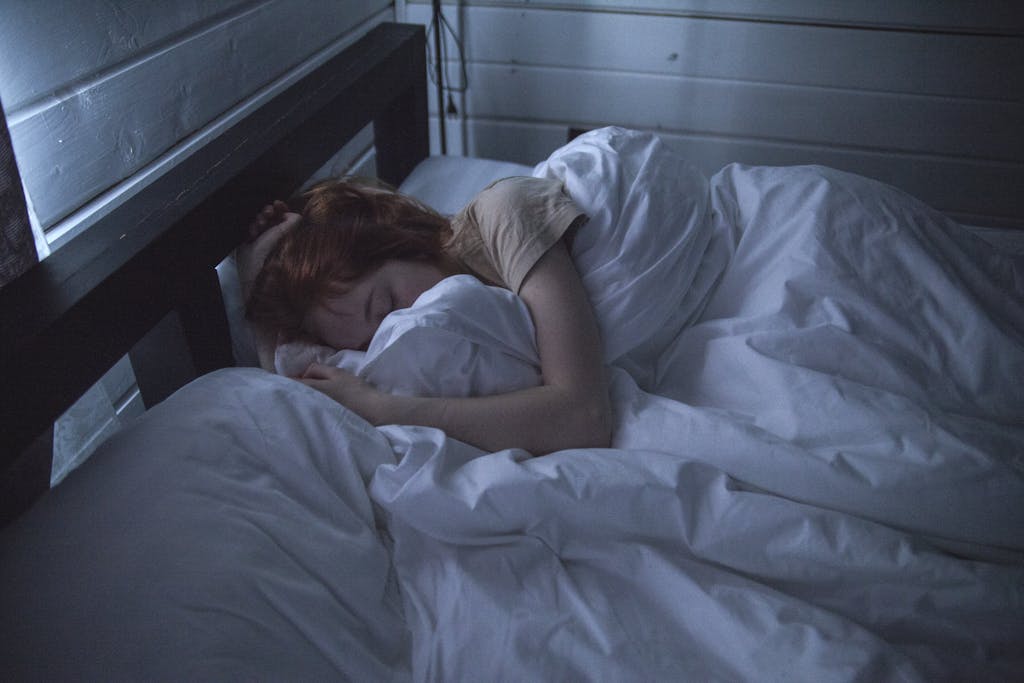
Improving Sleep Hygiene for Better Deep Sleep
If you struggle with getting enough deep sleep, there are several things you can do to improve your sleep hygiene. By establishing a consistent sleep schedule, creating a restful sleep environment, and practicing relaxation techniques before bedtime, you can increase your chances of achieving a better quality of sleep.
Establishing a Consistent Sleep Schedule
One of the most important things you can do to improve your sleep hygiene is to establish a consistent sleep schedule. This means going to bed and waking up at the same time every day, even on weekends. By doing this, you can help regulate your body’s internal clock, which can improve the quality of your sleep.
Creating a Restful Sleep Environment
Another key component of good sleep hygiene is creating a restful sleep environment. This means making sure your bedroom is quiet, dark, and cool. You may also want to invest in a comfortable mattress and pillows to ensure that you are as comfortable as possible while you sleep.
Relaxation Techniques Before Bedtime
Practicing relaxation techniques before bedtime can also help improve your sleep hygiene. This can include things like taking a warm bath, practicing yoga or meditation, or listening to calming music. By doing these things, you can help relax your body and mind, making it easier to fall asleep and stay asleep throughout the night.
By improving your sleep hygiene through consistent sleep schedules, creating a restful sleep environment, and practicing relaxation techniques, you can increase your chances of getting a better quality of sleep, including more deep sleep.
Medical Factors and Sleep Disorders
Getting enough deep sleep is essential for your overall health and well-being. However, certain medical factors and sleep disorders can interfere with your ability to get the restorative sleep you need. In this section, we’ll explore some of the most common medical factors and sleep disorders that can affect your ability to get deep sleep.
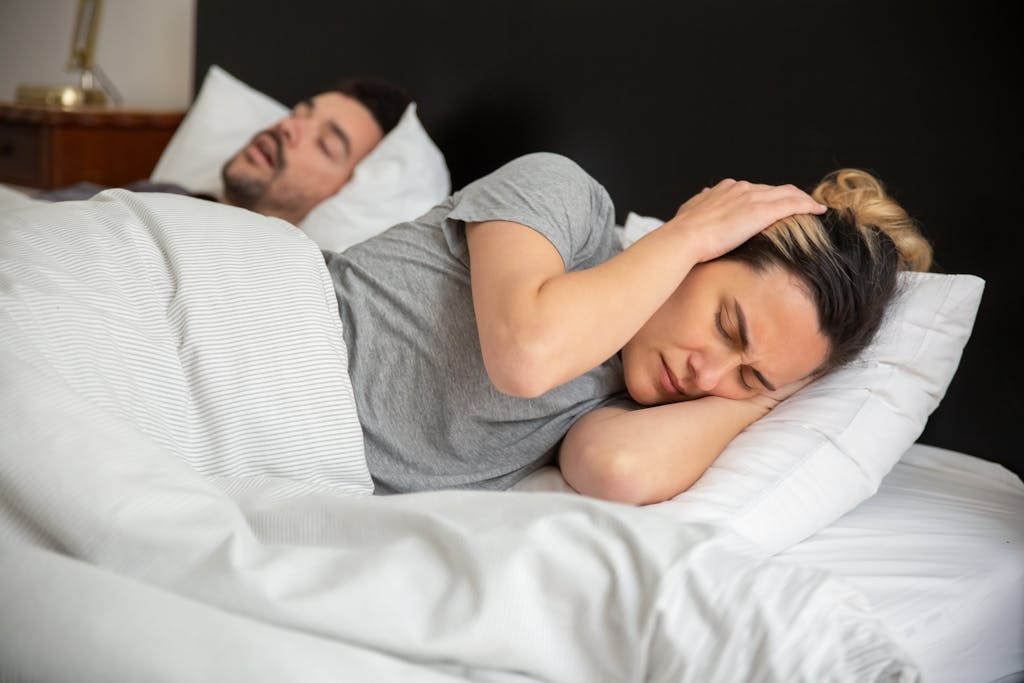
Identifying and Treating Sleep Apnea
Sleep apnea is a common sleep disorder that can significantly impact the quality of your sleep. It occurs when your breathing is interrupted during sleep, causing you to wake up briefly and preventing you from getting the deep, restful sleep you need.
If you suspect that you have sleep apnea, it’s important to seek medical attention. Your doctor may recommend a sleep study to diagnose the condition and determine the best course of treatment. Treatment options for sleep apnea may include lifestyle changes, such as losing weight or quitting smoking, as well as the use of a continuous positive airway pressure (CPAP) machine.
The Link Between Insomnia and Deep Sleep
Insomnia is another common sleep disorder that can interfere with your ability to get deep sleep. It’s characterized by difficulty falling asleep or staying asleep, and it can lead to daytime fatigue, irritability, and difficulty concentrating.
If you’re struggling with insomnia, there are several strategies that you can try to help improve your sleep quality. These may include establishing a regular sleep routine, avoiding caffeine and alcohol before bedtime, and practicing relaxation techniques such as deep breathing or meditation.
Effects of Medications and Health Conditions
Certain medications and health conditions can also interfere with your ability to get deep sleep. For example, certain antidepressants and blood pressure medications can cause sleep disturbances, as can conditions such as chronic pain or restless leg syndrome.
If you’re taking medications that are affecting your sleep, it’s important to talk to your doctor about alternative options. Similarly, if you have a health condition that is impacting your sleep, working with your healthcare provider to manage the condition may help improve your sleep quality.
Medical factors and sleep disorders can significantly impact your ability to get deep, restful sleep. By identifying and addressing these factors, you can take steps to improve your sleep quality and enjoy the many benefits of a good night’s sleep.

Lifestyle Adjustments for Enhanced Deep Sleep
If you struggle with getting enough deep sleep, there are some lifestyle adjustments you can make to improve your chances of getting a restful night’s sleep. Here are some tips to help you get started:
Incorporating Regular Physical Activity
Regular physical activity can help you fall asleep faster and stay asleep longer. Exercise can also improve the quality of your sleep, including the amount of time you spend in deep sleep. However, it’s important to avoid exercising too close to bedtime, as this can actually make it harder to fall asleep. Aim to finish your workout at least 3 hours before bedtime.
Dietary Considerations for Optimal Sleep
Your diet can also impact the quality of your sleep. Avoid consuming caffeine, nicotine, and alcohol close to bedtime, as these substances can disrupt your sleep. Instead, consider consuming foods that are high in tryptophan, an amino acid that can help promote sleep. Some foods that are high in tryptophan include turkey, chicken, fish, eggs, and nuts.

Mindfulness and Meditation Practices
Practicing mindfulness and meditation can help calm your mind and promote relaxation, making it easier to fall asleep and stay asleep. Consider incorporating relaxation exercises, such as deep breathing or progressive muscle relaxation, into your bedtime routine. You can also try practicing mindfulness meditation, which involves focusing your attention on the present moment without judgment.
By incorporating these lifestyle adjustments into your routine, you can improve your chances of getting the deep, restful sleep your body needs to function at its best. Remember, it may take some time to see results, so be patient and consistent with your efforts.
